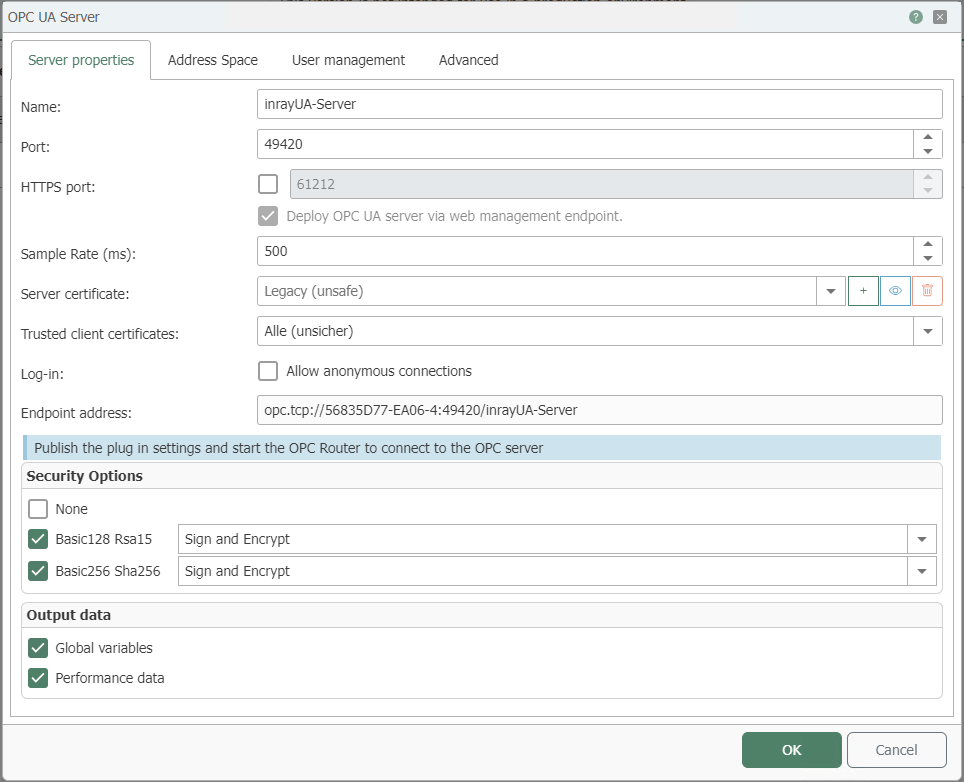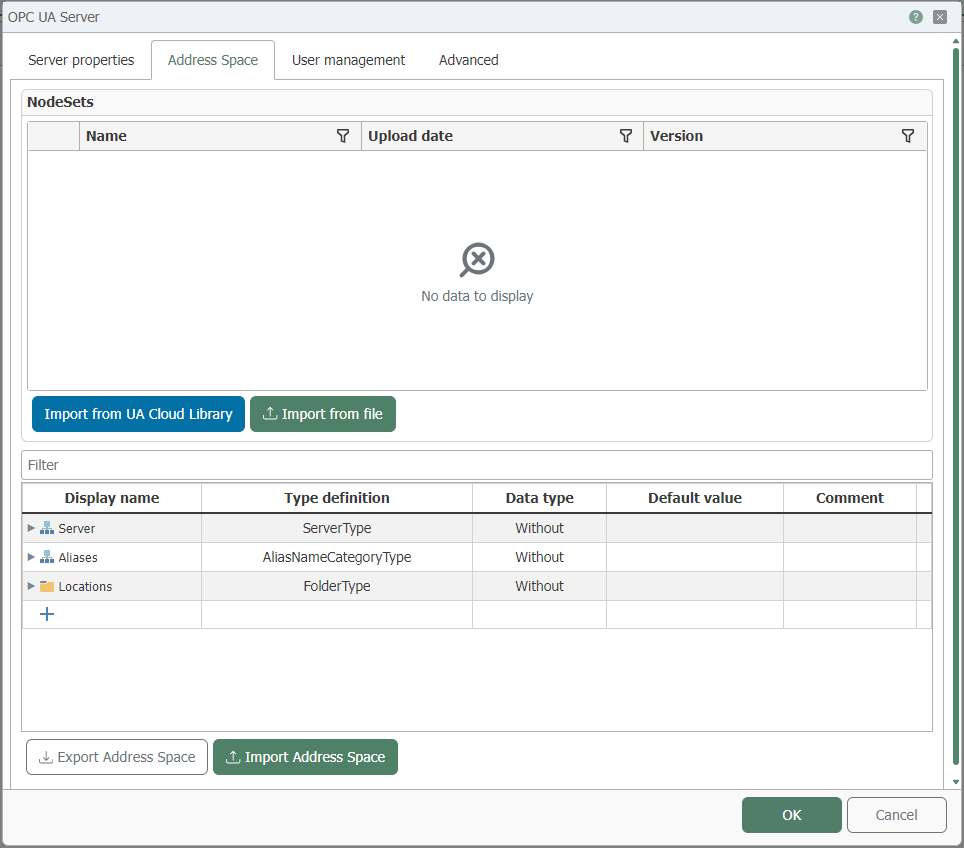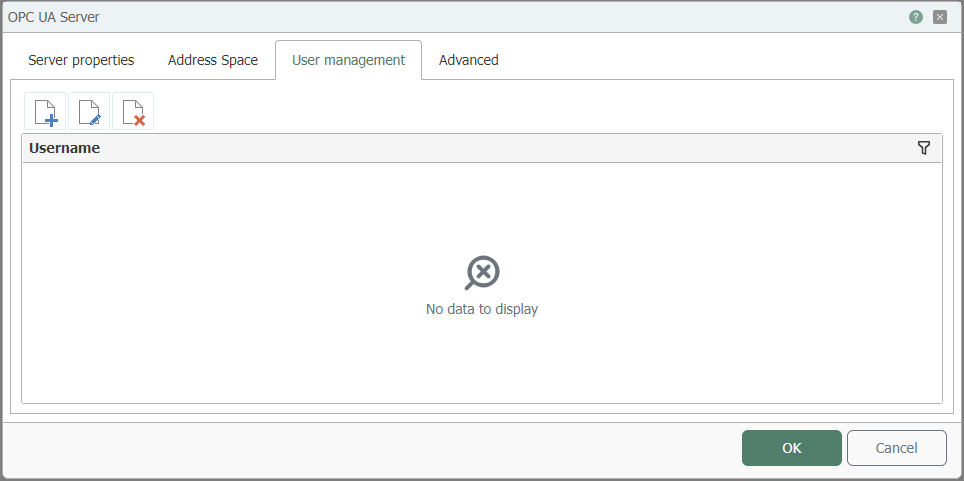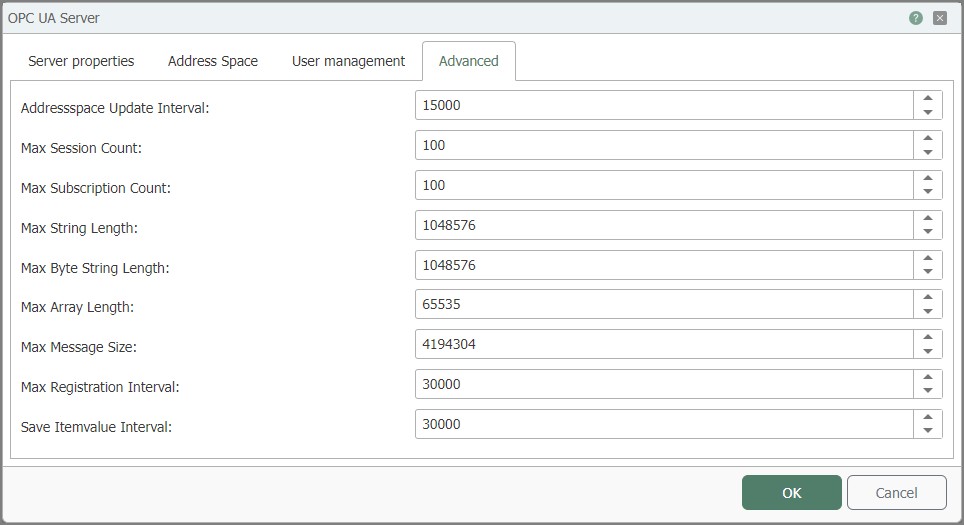OPC-UA Server Plug-in
Set the following properties of the OPC UA server:
Server properties

| Name | Any name under which this connection appears in the connection configuration. Choose a name that is clearly recognizable for you! |
|---|---|
| Port | Select the port via which the OPC UA server is to be reached. |
| HTTPS port | Selecting the first checkbox adds an HTTPS address to the endpoint address, and its port can be specified in the input field. |
| Sample Rate (ms) | Enter the “Sample rate” of the OPC UA server in ms. After this time has elapsed, the values for the output data points are updated. |
| Server certificate | Select the server certificate. You can create a new certificate using the + sign. The certificates are managed via the OPC Router settings. |
| Trusted client certificates | Determine which client certificates are permitted. You can create and allow additional certificates via the central certificate management in the OPC Router settings. Alternatively, you can use the Windows certificate management. |
| Log-in | Specify whether anonymous clients can log on to the OPC UA server. (Limited security, if active) |
| Endpoint address | The OPC UA server will be accessible via the link displayed. |
Security Options:
| None | Unencrypted connections will be allowed. |
|---|---|
| Basic128 Rsa15 | Only connections that are Basic128RSA15 encrypted are permitted. You can use the drop-down field to define whether a signed certificate is sufficient or whether it must also be encrypted. |
| Basic256 Sha256 | Only connections that are Basic256 encrypted are permitted. You can use the drop-down field to define whether a signed certificate is sufficient or whether it must also be encrypted. |
Output data:
| Global variables | If activated, the variables of the OPC Router are output as data points. |
|---|---|
| Performance data | If activated, some performance data of the OPC Router Service is output. |
Address space:

Define the data point for your OPC-UA server.
Use the Column “Name” for a random name. Also, you can define folders an objects.
Additionally, you can define default values.
User management:

Use the “User management” to define some users and specify rules for read and write permissions.
Advanced

| Address space Update Interval | Specifies the interval at which the address space is updated. |
|---|---|
| Max Session Count | Limits the maximum number of sessions to the specified value. |
| Max Subscription Count | Limits the maximum number of subscriptions to the specified value. |
| Maximum string length | Limits the maximum string length (number of characters) to the specified value. |
| Max byte string length | Limits the maximum number of bytes that a byte sequence can contain to the specified value. |
| Max array length | Limits the maximum number of elements that an array can contain to the specified value. |
| Max Message Size | Limits the maximum size of a message (bytes) that can be sent via the OPC UA protocol. |
| Max Registration Interval | Specifies the maximum interval in which the client must register with the server. |
| Save Itemvalue Interval | Specifies the interval at which the item values are saved. |
note
Note: A server always starts with an object. Below this, the structure can be freely defined.